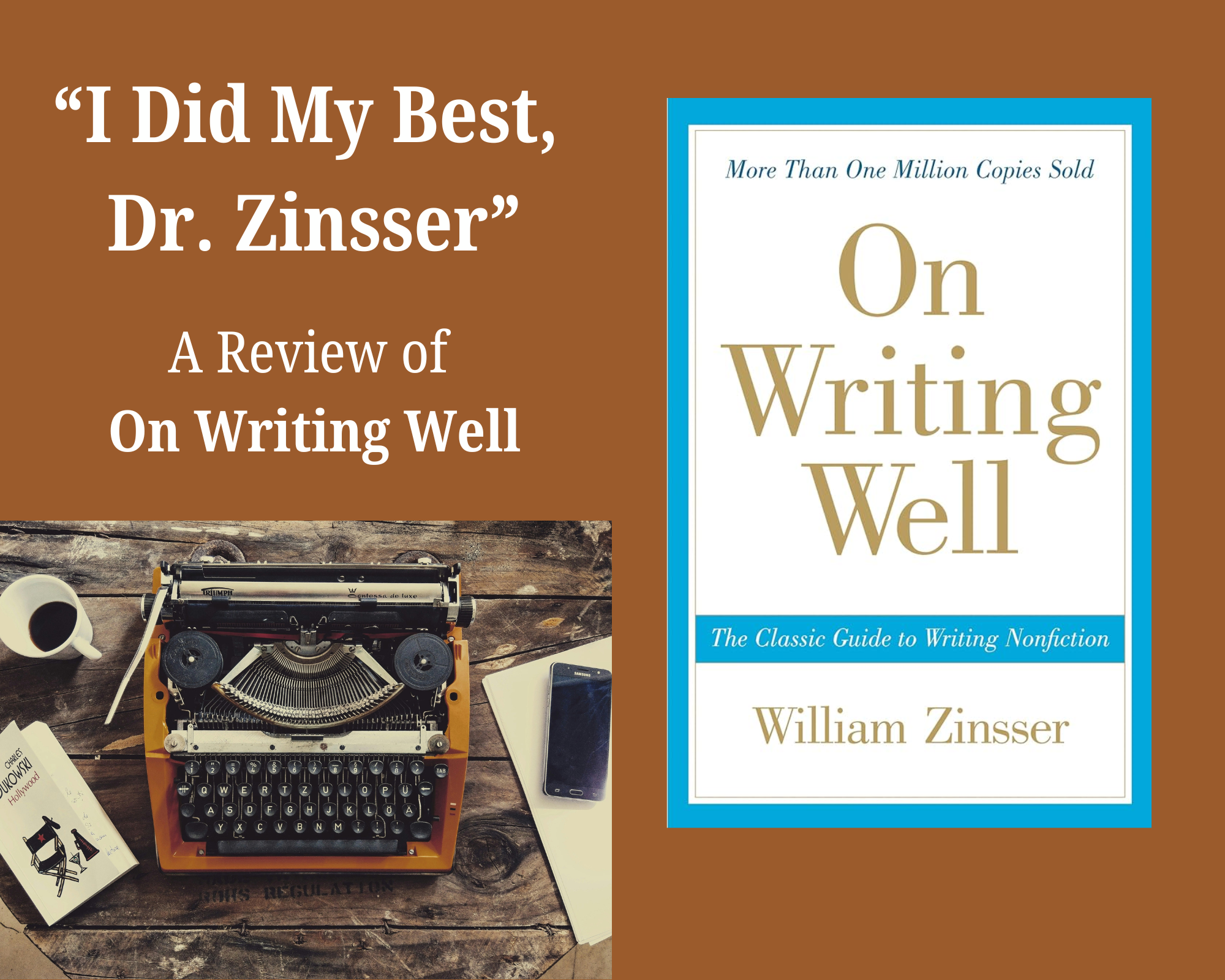I’ve just returned home from the ReWrite writers conference in Austin. It was a great time of listening to and connecting with numerous talented and passionate writers. I thoroughly enjoyed it.
But I can’t help thinking about the fact that a lot of the people who attended are going to experience some level of rejection in the days ahead. It goes with the territory. If you take the risk of putting yourself out there, you’re going to hear no a time or two . . . or hundreds.
You could quit, of course, but who wants to do that? Better to remember these six things:
1. This is your calling, and what others say does not change that.
Remember that if you’re called to write, your mission is to write, not get published or have thousands of fans or hit the bestseller lists. Hearing no hurts, without question. Take a minute to hurt, then get back to writing.
2. You’re not writing for everybody.
Oftentimes we encounter closed doors because the people closing them are not our audience. It is a great moment of freedom when you realize you’re not doing this for everybody. So when you experience rejection, try saying this in your head to the person closing the door: “That’s okay. This isn’t for you. It’s for someone else.”
3. Learn what you can.
Don’t settle for a simple no. Squeeze out of it everything you can learn. Sometimes when I say no as a publishing insider, I’m super busy, and I don’t have time to go into detail about all the reasons behind my no. But if the writer comes back to me and says something like “Thanks so much for taking the time to review my project. I’m trying to learn as much as I can about writing/publishing, and I would really value your advice,” I’ll respond! But if you don’t ask, I assume you don’t really care that much.
4. Congratulate yourself.
That might sound odd, but when your project is declined, it’s proof you “shipped” something, as Seth Godin would say. That’s more than a lot of people do. You tried. You surely learned something in the process. Bravo! Celebrate!
5. Take care of yourself.
You’ve been through a lot. This is tough. It can feel like your chest is being crushed, and all you want to do is kick the dog or drown the cat…or drown yourself. In Vodka. I get it. But if you were to fake loving yourself for a day or two, how would that look? Would you go to a spa? Would you watch a funny movie or read Calvin & Hobbes? Eat a sundae? Give that to yourself. You deserve it.
6. Take the long view.
You’ve heard how J. K. Rowling was rejected a million times before a publisher reluctantly decided to publish the insanely successful Harry Potter series. You know that story and countless others like it, but the point is still true. This takes time. Chances are you won’t get signed right out the gate, and authors who do are often worse off because they’re not ready for the opportunity. They publish one book that tanks and then can’t get anyone to pay attention to them. Some rewards come, and come only, from persistence, patience, and time.
Remember, if you’re not hearing no, you’re probably not trying very hard. It’s part of the process. Painful, but in most cases essential.
[Tweet “”6 Things for Writers to Remember When an Editor or Agent Says No” (via @ChadRAllen)”]
[reminder]Which of these resonates the most with you? What has helped you when you have experienced closed doors?[/reminder]
[callout]Bonus Content: The best way to start a nonfiction book project is by writing a book proposal. I’d love to give you a free copy of my Book Proposal Guidelines, used by countless authors to write their book proposals. [button href=”https://www.chadrallen.com/getbookproposalguidelines” primary=”true” centered=”true” newwindow=”false”]Download[/button][/callout]






19 Responses
I’d say the one about “it’s not for everybody” has been most helpful for me. Sometimes my writing might be for an audience of One. And He probably has in mind others who need to read it. The biggest help for me when I experience closed doors or other setbacks is to have more than one project in mind. I can take a break and still be productive. This is great information to read, and remember! Thanks.
Good stuff Chad! Number Three resonates with me. The first agent to reply to my current proposal said he didn’t think it scratched an itch; I learned I hadn’t presented the market well. I reworked the proposal. The next one had concerns about my platform; I learned that I need to take some steps to strengthen that. I’m taking them. With every rejection, I’m learning how to play this game (Well, except for the three-word rejection one agent gave me: “Not for me.”) Thanks for putting that idea in writing for me!
You’re welcome, Ryan. Way to capitalize on those responses. As my good friend Warren Wiersbe says, the bumps are what you climb on…
Love the encouragement. Learn what you can resonates with me. Maybe you got a no, but there are ways to grow from it and up your game.
“But if you were to fake loving yourself for a day or two, how would that look? Would you go to a spa? Would you watch a funny movie or read Calvin & Hobbes? Eat a sundae? Give that to yourself. You deserve it.”
Brought tears to my eyes I have a friend who took a writing course ages ago but never published anything because she couldn’t take the “no”s we all get. Thanks.
I’ll also keep the asking for advice thought in mind for when I need it. Knowing what to do about a problem makes it far more bearable.
My own story is in an interesting spot at the moment. There are only 2 traditional publishers in my genre; only about 60 books a year get published by them. My book is badly needed in the field and, as you point out, this calling gave me the courage to approach them knowing the deck was stacked against me.
One publisher turned me down as not being a good fit pretty quickly, but the other I most wanted to work with told me they just didn’t have room for my book. Life circumstances stopped me from pursuing self-publishing last Fall, and just as I was gearing up to learn about ePub, et al. I got a message back.
Was I still interested? Could the editor who’d first passed on the book present it to the full committee?
Just getting your work in front of an editor could be the networking you need to break through.
I haven’t heard back yet, but, whatever happens, I know it’s not the quality of my writing and idea that are the problem. Publishing is a cutthroat business and they have to turn a profit.
If I end up self-publishing, it will be with confidence in my message and concentrated focus on marketing.
Really appreciate your encouragement. You get what it’s like for us and those on the other side. God bless!
Thank you, Chad. These guidelines are helpful. I’m most drawn to your offer to give feedback on a rejection if you are asked. I’m still trying to learn my way at writing and publishing; I read or was told long ago not to request feedback from the rejecting person–it was considered out-of-line and rude. It’s encouraging to know that some editors don’t mind the request and are willing to help. I’m writing devotionals, articles, and a short story now and then; and I’ve started on a non-fiction book. I am saving your article for future rejections.
Hi Chad!
Great post. Number 3 resonates most with me. Maybe my story will encourage someone who reads this…
About a year and a half ago, an editor generously gave his time to have a lengthy call with me and explain why my proposal was declined. Of course, I felt totally defeated at the time, but I knew I needed to take what he said to heart. I thought a lot about one particular issue that was brought up (the credibility of having the credentials to write the kind of book I proposed) and realized I needed to slightly adjust my direction. I didn’t move far from where I was originally, but it was just the RIGHT adjustment. Having tailored my niche based on the editor’s feedback, my blog soon exploded. Within 6 months, a publisher reached out to me, and I’m now working around the clock to get my manuscript done by April 1 for a February 2016 release.
Truly, I don’t believe any of this would have happened if that kind editor hadn’t given me feedback. The problem with just taking no and having zero context for the reason is that you don’t know if you’re currently running on a track where you’re two steps away from the right lane or if you need to be on another track completely. If you’re running on the wrong track, you could end up spending an enormous amount of time tweaking what you’re already doing when you really need to make a more substantial change. If you’re only two steps away from the right lane, but don’t know it, you could end up making more substantial changes than you need to. The only way you can know is if someone gives you very specific feedback.
I’m really grateful for that wonderful editor’s time and can testify to just how important that third point is. 🙂
Natasha
Love it, Natasha. Thank YOU for taking the time to chronicle this. It will be very helpful to a lot of people, I’m sure!
Thanks, Chad. Good timing. I especially like #4.
Hey Paul, great to see you on here! Thanks for commenting. I’m fond of #4 too.
Great advice, Chad. Appreciated your RE:Write Conference talk!
Thanks, Rachel!
This is so good!
Yeah, when you won the writing contest I was thrilled, of course. But shortly thereafter I started thinking about the nine other finalists. That was a tough moment for them, I’m sure.
This was such a good read!!! I don’t consider myself a writer, but I feel God is telling me to write. I got invited to the speak up conference in July! It will be the first time going in front of a publisher. All I can say is I’m moving by faith. I needed to read this. I will save it and probably read it numerous times.
Paula, good luck on your speaking gig! And I’m glad this was helpful to you.
Hi Chad, I appreciate your insight. You’re right. It’s my calling. A writer hears lots of voices. A publisher requested a proposal. Her response: “You’ve hit a felt need, but I don’t know how to market it.” An agent: “I love your idea but nobody will buy it. It’s ahead of its time.” I weigh their words carefully; I’ve much to learn. Then there’s that nagging Voice. Write. Write. So I do. I find value in the process. As I go, I’m learning how to craft my ideas to reach my audience. You might say right now I’m writing for an Audience of One.
Keep after it, Lora. The breakthroughs will come.